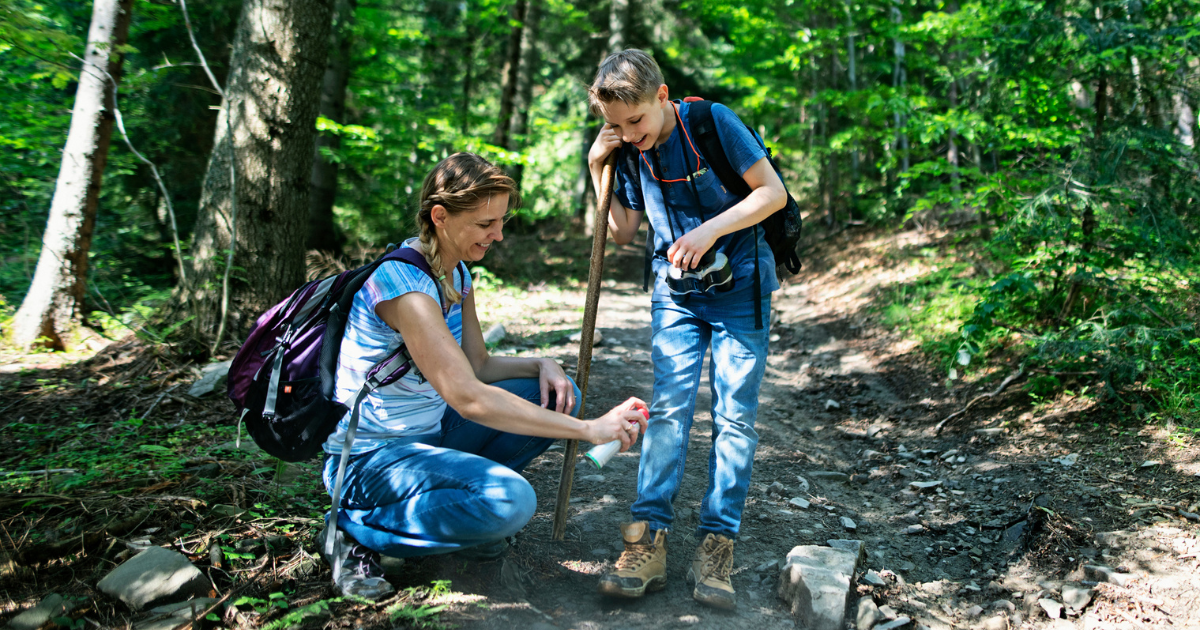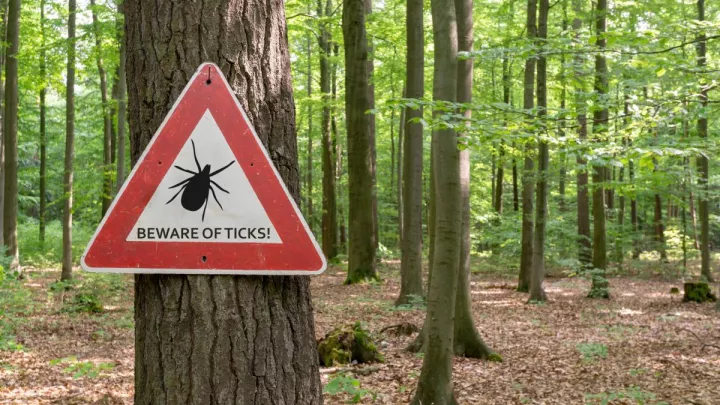Something bugging you? 5 tips for treating and preventing bug bites and stings

Whether hiking, camping or simply enjoying a picnic at the park, venturing outside can expose you to insect bites, stings and other irritations. Knowing how to handle these situations can make a big difference in keeping you and your family healthy.
Below, Eric Eickhoff, PA-C, discusses five common bug concerns and tips for addressing and preventing them.
Tick Bites
Tick bites are often painless and may cause minor symptoms like changes in skin color, swelling or a sore. However, some ticks can spread bacteria, leading to illnesses like Lyme disease and Rocky Mountain spotted fever, making prompt and proper removal crucial. Lyme disease, caused by the bacterium Borrelia burgdorferi, is transmitted through bites from infected black-legged or deer ticks. These ticks are commonly found in Douglas, Sarpy, Saunders and Thurston counties in Nebraska.
To remove a tick:
- Use fine-tipped tweezers to grasp the tick as close to the mouthparts as possible.
- Pull upward with steady, even pressure.
- Avoid twisting or jerking, which can cause the mouthparts to break off.
- Clean the bite area with soap and water, then apply an antiseptic.
- Monitor for symptoms for at least 30 days.
Seek medical care if:
- You cannot completely remove the tick.
- You experience heart palpitations, difficulty breathing, severe headache or paralysis.
- A rash develops at the bite site that grows larger or forms a bull's-eye pattern.
- Flu-like symptoms such as fever, chills, fatigue or muscle and joint pain occur.
- You develop signs of infection, such as pain or oozing, at the bite site.
If possible, bring the tick to your doctor's appointment in a tightly sealed Ziplock bag, ideally taped between cellophane layers. Your doctor can then send it for testing to identify any potential bacteria transmitted by the tick. It’s easier to test the tick than for them to test you.
Bee or Wasp Stings
If you come across a bee or wasp nest, stay calm and avoid provoking them. They are likely to leave you alone if you don’t bother them. If you are stung, gently scrape out the stinger with a credit card or fingernail. Avoid using tweezers, which can break the stinger. Clean the area with soap and water, then apply a cold compress to reduce swelling. Over-the-counter pain relievers and antihistamines can also help relieve pain and allergic reactions.
Seek immediate medical care if you have a known allergy or show signs of an allergic reaction, such as difficulty breathing or swelling of the face and throat. In cases of anaphylaxis, your doctor will likely use an Epinephrine pen. Even if you use your own Epinephrine pen at home, it's crucial to go to the nearest emergency room for close monitoring.
Mosquito Bites
Mosquito bites can be itchy and irritating. Avoid scratching them, as this can lead to infection. Instead, apply a cold compress or ice pack to reduce irritation. Over-the-counter anti-itch creams and calamine lotion can also provide relief.
In some cases, a severe reaction to mosquito bites can cause:
- A large, swollen, inflamed area.
- A hive-like rash.
- Swelling around the eyes.
- Fever or flu-like symptoms.
Children are more likely to have a severe reaction than are adults. Call your doctor if you or your child experience unusual symptoms.
Spider Bites
Most spider bites are harmless and cause mild symptoms like redness and swelling. However, some spiders, like the black widow and brown recluse, can cause more severe reactions. If you suspect you've been bitten by a dangerous spider or experience any of the following symptoms, seek medical attention right away:
- Severe pain
- Muscle cramps
- Difficulty breathing
Ant Bites
Ant bites can cause redness, swelling and discomfort. If you get bitten by an ant, wash the affected area with soap and water. Applying a cold compress can help reduce pain and inflammation. Over-the-counter antihistamines and pain relievers can also alleviate itching and discomfort. If the bite becomes infected or you experience unusual symptoms, consult a doctor.
Preventing Bug Bites and Stings
To reduce the risk of bug bites and stings, follow these tips:
- Use insect repellent outdoors, especially in dense vegetation or near standing water. It's safe for adults and children and typically lasts two to four hours.
- Wear long sleeves, pants tucked into socks and closed-toe shoes in wooded areas. Light-colored clothing can also help you spot ticks and bugs easily.
- Consider permethrin-treated clothing to repel insects, knowing its effectiveness diminishes with washes.
- Remove standing water, as this can attract mosquitoes and other insects.
- Check yourself and your pets after outdoor activities.
If you have concerns about a bug bite or sting, don't hesitate to consult a doctor or health care provider. Taking proactive steps can help prevent potential complications from bug encounters.






